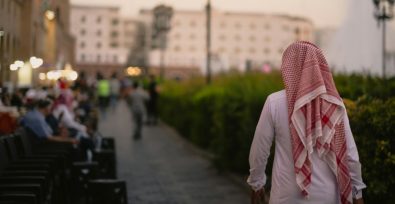The UN Refugee Agency (UNHCR) has turned down dozens of refugee relocation requests, including from women and children who were previously detained and abused in Libya’s horrendous government-run migrant detention centers.
UNHCR said it had to reject their requests because there are “simply not enough evacuation and resettlement places available” from third countries. The refugees are being hosted by UNHCR at a transit center in the Libyan capital.
In response to their rejections, refugees staged a protest outside of UNHCR’s Gathering and Departure Facility (GDF), holding signs that read “Refugees want peace, not rejection” and “We need a system of appeal.”
Protestors told Al Jazeera that some 87 applications were rejected last week — the first time UNHCR has turned down such relocation requests.
Al Jazeera reports:
The centre was set up in December to host “particularly at risk” refugees and migrants rescued from migrant detention centres in Libya, where rights groups say abuse including beatings and forced labour are widespread.
Many of those held at the detention centres were caught by the Libyan coastguard while attempting to make the perilous Mediterranean Sea crossing to Europe.
The UNHCR says more than 5,000 refugees and migrants are still being held in such detention centres, of which 3,700 are “persons of concern”. The refugees whose relocation requests were turned down last were asked to leave the GDF to make space for other “more vulnerable refugees from detention centres”, the agency said.
A Somali mother who was asked to leave the GDF said she was too frightened for herself and her three-year-old son to leave the centre. “In Libya, it’s like Somalia, they are fighting each other. If you go outside there is a lot of violence,” she told Al Jazeera in a phone call.
“They will cut you, they will ask you for money … When you are a woman and you have children, and this country is not at peace, how can we live in Libya?”
A young Eritrean woman, who was previously held at the now-closed Tariq al-Matar detention centre in Tripoli, said she was “panicking” after being asked to leave the UNHCR center.
She was taken to the Tariq al-Matar center after being caught by the Libyan coastguard on her fourth attempt to cross the Mediterranean Sea. She says she was electrocuted by Libyan guards at Tariq al-Matar and is afraid for her safety in Libya.
Another Eritrean woman who fled her home said UNHCR offered to repatriate her to Eritrea, a country where a dictatorship forces its citizens into indefinite conscription.
“They say it’s better for you if you get out from here, go back to your country. But we can’t,” she said.
“It is dangerous because we have escaped, we left illegally.”







Freedom United is interested in hearing from our community and welcomes relevant, informed comments, advice, and insights that advance the conversation around our campaigns and advocacy. We value inclusivity and respect within our community. To be approved, your comments should be civil.
Refugees are not interested in making their country of origin better places. They just care about living a good life in Europe.